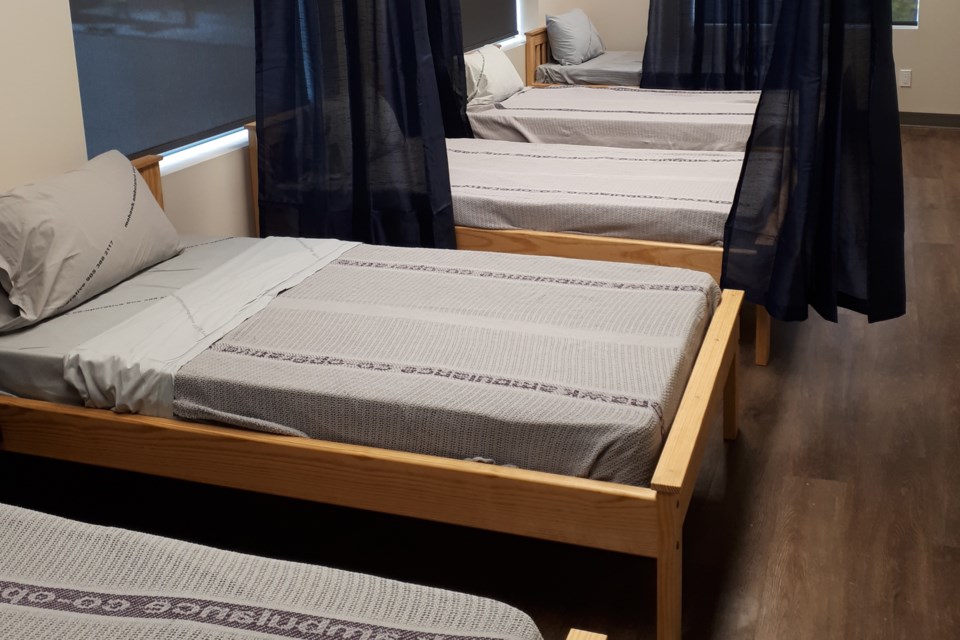A more permanent home for the Supportive Recovery Room has opened in Guelph’s downtown, offering a place for people dealing with addictions or mental health issues to get restorative sleep.
After a two-bed pilot project concluded last year at Wyndham House, community partners got together to find funding and plan for a more permanent home for the Supportive Recovery Room (SRR), said Kerry Manthenga, interim executive director of Stonehenge Therapeutic Community.
On Oct. 21, a more permanent five-bed SRR opened above the Welcome In Drop-In Centre on Gordon Street, which doubled the capacity of the program.
“It felt like a significant improvement over the two beds, because there were times we weren’t able to accommodate everybody with two,” said Manthenga.
The new SRR has secured funding for the next eight months, with hopes of extending it further, said Manthenga.
Part of the job of SRR staff and partners over the next eight months will be to collect data about how the room is being used and add that to the data collected from the pilot phase, she said.
The site is intended as a safe place for clients to receive restorative sleep needed after drug use or a mental health crisis and costs to operate it are estimated at $625,000 a year.
“We are looking for longer term, sustainable funding. We are working with the funders already committed to the project to see how we can move to sustain the project past the eight months,” said Manthenga.
Based on data collected during the pilot phase, Manthenga expects a similar demographic to use the more permanent site.
“We do anticipate many folks will be using methamphetamine solely or as part of a polysubstance-using experience,” said Manthenga. “People who presented with other substance-related crises or with a mental health crisis who don’t have a safe place to go to get the sleep they need will also be represented.”
Reopening the SRR was identified as a priority by the Mayor’s Task Force on Homelessness and Community Safety, which was released in February.
“There was a really clear call for the value that it added in the pilot phase and it was really fantastic that everything aligned with the Mayor’s Task Force to get the energy behind the service so it could come back to the community,” said Manthenga.
During the five-month pilot project, a total of 62 people used the service.
The SRR can be a pathway to withdrawal management or treatment, said Manthenga. At least one of those clients shared his story with the partner agencies that support the project.
“He had several admissions to the supported recovery room before he came in and was ready for the conversation about what a more lasting change might be for him,” said Manthenga. “He ended up spending some time in withdrawal management and then going on to treatment.”
Overdose prevention teaching will also be available on site.
“That will be a big part of connecting folks who are using opioids to the other supports that are there, to make sure those relationships are seamless and that people are able to be safer in what is happening as they take the opportunity to see what comes next for them,” said Manthenga.
The program is led by Stonehenge Therapeutic Community in partnership with Wyndham House, Guelph Community Health Centre (CHC), and the Welcome In Drop-In Centre.
The SRR has a staffing model that includes 247 support from Wyndham House working alongside addiction/concurrent clinical staff from Stonehenge and nursing staff from CHC.
A client using the SRR could be warm-transferred from a partner agency, first responder or the Guelph General Hospital.
“Sometimes a good night’s sleep and a supportive environment can go a long way in helping a person recover when they find themselves in crisis,” said Manthenga.
“We want people in crisis to know we have the expertise and compassion to help them through and provide the addiction and mental health supports, health care and ongoing monitoring to help them rest and recover.”
